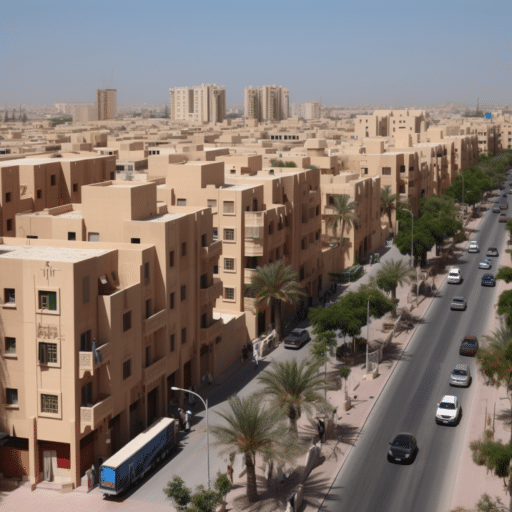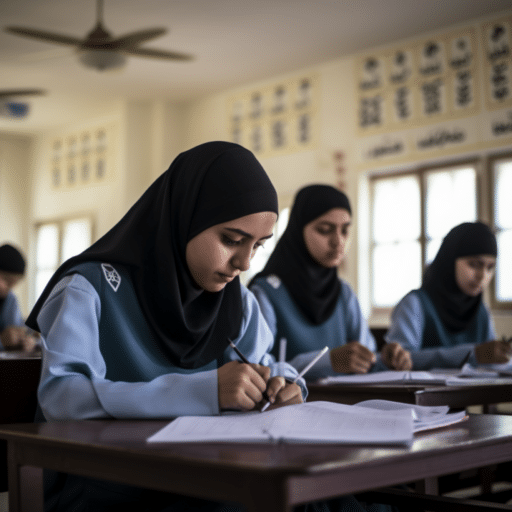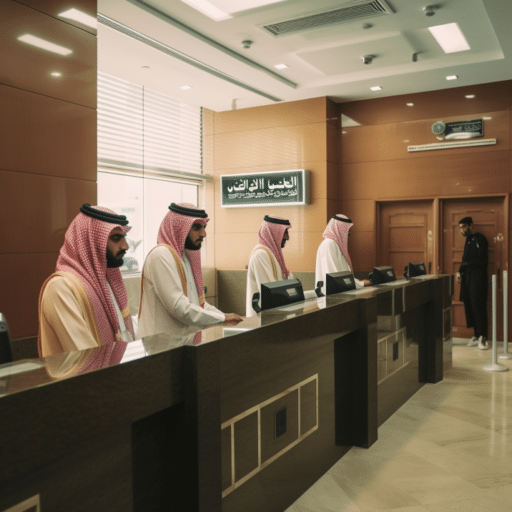Are you dreaming of serene landscapes, a quieter lifestyle, and affordable homeownership in rural areas in Saudi Arabia?
Understanding the importance of knowing about financing options for houses in rural areas in Saudi Arabai is key to making informed decisions and fulfilling your homeownership dreams.
Saudi Arabia, with its diverse landscapes and vibrant culture, offers a range of rural areas that provide attractive opportunities for budget-conscious homebuyers.
This blog serves as your go-to guide, unveiling the most affordable rural areas in Saudi Arabia to purchase a house. By shedding light on these hidden gems, we aim to empower you with valuable knowledge and insights necessary to embark on your journey toward homeownership.
If you want to invest as an expat or high-net-worth individual, which is what I specialize in, you can email me (advice@adamfayed.com) or use WhatsApp (+44-7393-450-837).
What are the key factors to consider when looking for affordable rural areas to buy a house in Saudi Arabia?
When searching for affordable rural areas in Saudi Arabia, several key factors should be considered. These factors will help you evaluate the potential of a particular location and make an informed decision. Here are the key factors to consider:
Location and Accessibility
Consider the location of the rural area and its proximity to major cities, highways, and transportation networks. Assess the accessibility and ease of travel to and from the area, as well as its connectivity to essential amenities and services.
Property Prices
Research property prices in different rural areas to find affordable options within your budget. Analyze market trends, recent sales data, and property values to understand the price range in the areas you are interested in.
Amenities and Services
Evaluate the availability of essential amenities and services in the rural area. Consider factors such as access to healthcare facilities, schools, grocery stores, banks, and other necessary services that can support your daily needs and lifestyle.
Infrastructure and Utilities
Assess the quality of infrastructure and utilities in the area, including roads, electricity, water supply, and internet connectivity. Adequate infrastructure ensures convenience and a comfortable living environment.
Employment Opportunities
Research the local job market and employment opportunities in the rural area or nearby towns. Consider the availability of industries, businesses, or economic activities that can provide job prospects or support your livelihood.
Natural Surroundings and Environment
Evaluate the natural surroundings and environment of the area. Consider factors such as landscapes, climate, proximity to natural attractions, and outdoor recreational opportunities that contribute to the overall appeal of the location.
Safety and Security
Assess the safety and security situation in the rural area. Research crime rates, community safety initiatives, and local law enforcement presence to ensure a secure living environment for you and your family.
Legal and Regulatory Considerations
Familiarize yourself with the legal and regulatory requirements for property ownership in rural areas in Saudi Arabia. Understand any specific restrictions, zoning regulations, or land-use policies that may affect property purchase and use.
Community and Lifestyle
Explore the community atmosphere and lifestyle of the rural area. Consider factors such as cultural activities, community engagement opportunities, social events, and any specific lifestyle preferences that align with your values and interests.
Future Development Plans
Investigate any planned or ongoing development projects or infrastructure improvements in the rural area. Assess the potential for future growth, property value appreciation, or enhancements to the quality of life in the area.
What are the cheapest rural areas in Saudi Arabia to buy a house?
Determining the absolute cheapest rural areas in Saudi Arabia for a property investment can be challenging, as property prices can vary depending on several factors, including location, amenities, and market conditions.
However, there are some regions known for offering more affordable housing options in rural areas. Here are eight examples of relatively affordable rural areas in Saudi Arabia:
Al Qassim Region
Located in the heart of Saudi Arabia, the Al Qassim region offers affordable housing options in rural areas such as Buraydah, Unaizah, and Al Bukayriyah.
Hail Region
The Hail region, in the north-central part of the country, has rural areas like Hail City and Al Ula, where housing prices are relatively affordable compared to major urban centers.
Al Jouf Region
Situated in the north of Saudi Arabia, the Al Jouf region, including towns like Sakakah and Qurayyat, offers more affordable housing options in rural settings.
Najran Region
The Najran region, located in the southwest of Saudi Arabia, has rural areas like Najran City and Sharurah, where housing prices may be more affordable compared to metropolitan areas.
Jazan Region
The Jazan region, in the southwest corner of the country, has rural areas such as Jazan City and Abu Arish, where housing prices may be relatively lower compared to urban centers.
Al Bahah Region
Situated in the southwest of Saudi Arabia, the Al Bahah region offers rural areas like Baljurashi and Al Bahah City, where housing prices may be more affordable compared to major cities.
Al Jouf Region
The Al Jouf region, located in the north of Saudi Arabia, has rural areas like Sakakah and Qurayyat, where housing prices are relatively affordable compared to major urban centers.
Eastern Province (Qatif and Al Khobar)
Certain areas within the Eastern Province, such as Qatif and Al Khobar, may have rural areas with more affordable housing options compared to urban centers.

Certain areas within the Eastern Province, such as Qatif and Al Khobar, may have rural areas with more affordable housing options compared to urban centers.
Are there any legal requirements or restrictions for non-Saudi nationals to buy property in rural areas of Saudi Arabia?
Yes, there are legal requirements and restrictions for non-Saudi nationals to buy property in rural areas in Saudi Arabia. The regulations and procedures surrounding property ownership by non-Saudis are governed by the Ministry of Municipal and Rural Affairs and the Saudi Arabian General Investment Authority (SAGIA). Here are some key points to consider:
Limited Ownership
Non-Saudis can only own property in designated areas known as “Integrated Residential Complexes” (IRCs) or “Residential Units for Non-Saudis” (RUNDs). These areas are specifically designated for non-Saudi ownership.
Permission from Authorities
Non-Saudis must obtain prior approval from the Ministry of Municipal and Rural Affairs or SAGIA before purchasing property in an IRC or RUND. The approval process involves verifying eligibility and ensuring compliance with relevant regulations.
Eligibility Criteria
Non-Saudis eligible to own property typically include expatriates with valid residency permits (Iqama) and certain categories of investors, such as those involved in specific sectors identified by SAGIA.
Investment Minimums
Some areas may have investment minimums for non-Saudis to be eligible for property ownership. These minimums vary depending on the location and type of property.
Leasehold Option
Non-Saudis who do not meet the ownership criteria or wish to avoid the restrictions can consider leasing property. Long-term lease options are available in various areas, including rural regions, and can provide stability and control over the property for a specified period.
Legal Documentation
Non-Saudis must ensure they have the necessary legal documentation in place, including a valid residency permit (Iqama) and a clear understanding of the purchase process, contractual obligations, and property rights.
Inheritance and Succession
Non-Saudis may have certain limitations on inheriting or passing down property to heirs. It is important to consult with legal professionals or experts to understand the inheritance and succession laws specific to non-Saudi property ownership.
How does the cost of living in rural areas in Saudi Arabia compare to urban areas?
The cost of living in rural areas in Saudi Arabia generally tends to be lower compared to living in urban areas. However, it’s important to note that the cost of living can still vary depending on the specific location within each category. Here are some factors to consider when comparing the cost of living in rural and urban areas:
Housing Costs
Housing costs in rural areas are often more affordable compared to urban areas. Property prices, both for purchasing and renting, tend to be lower in rural areas, allowing for potentially more spacious and affordable housing options.
Transportation
Rural areas in Saudi Arabi may have lower transportation costs compared to urban areas. Fuel prices and commuting distances are generally lower in rural regions, but access to public transportation options may be more limited.
Utilities
Utility costs, such as electricity, water, and internet services, are usually comparable between rural and urban areas. However, connection fees and infrastructure maintenance costs can vary depending on the remoteness of the rural area.
Food and Groceries
The cost of groceries and food items can be slightly higher in rural areas due to factors like transportation costs for goods and limited competition among suppliers. However, local produce and seasonal items may be more affordable and readily available in rural areas.
Healthcare
Healthcare costs in rural areas in Saudi Arabia can be influenced by the availability of medical services and facilities. While primary healthcare services may be more accessible, specialized care and certain medical treatments may require travel to urban centers, potentially incurring additional costs.
Education
Education costs, including school fees, are generally consistent across rural and urban areas. However, rural areas may have limited options for private or specialized education, which could impact choices and costs for families seeking specific educational opportunities.
Entertainment and Lifestyle
The cost of entertainment and lifestyle activities can vary depending on personal preferences and the specific amenities available in the area. Rural areas in Saudi Arabia may have fewer options for entertainment, dining, and cultural events, but outdoor activities and natural attractions may be more accessible and affordable.
Employment Opportunities and Salaries
Rural areas generally offer fewer employment opportunities compared to urban areas, and salaries may be relatively lower as well. It’s important to consider the availability of jobs and the potential impact on income when evaluating the cost of living in rural areas.

Education costs, including school fees, are generally consistent across rural and urban areas.
What are the potential benefits of investing in rural areas in Saudi Arabia?
Investing in rural areas in Saudi Arabia can offer several potential benefits. While each investment opportunity is unique and should be thoroughly evaluated, here are some potential advantages of investing in rural areas:
Lower Property Prices
Rural areas in Saudi Arabia generally have lower property prices compared to urban areas. This can provide an opportunity for more affordable investments and potentially higher returns on investment.
Higher Rental Yields
Rental yields in rural areas can often be higher compared to urban areas. The lower cost of properties combined with strong demand for rental housing in rural communities can result in attractive rental returns.
Potential for Capital Appreciation
As rural areas develop and infrastructure improves, there is potential for capital appreciation of properties. If an area experiences economic growth, increased demand, or government investment, property values can rise over time.
Diversification
Investing in rural areas in Saudi Arabia allows for portfolio diversification. By spreading investments across different regions and sectors, investors can mitigate risk and potentially benefit from varied economic trends.
Opportunities in Agriculture and Agribusiness
Saudi Arabia has been focusing on developing its agricultural sector as part of its national strategy. Investing in rural areas with agricultural potential or related agribusinesses can tap into this growing industry and benefit from government support and incentives.
Natural Resources and Tourism
Some rural areas in Saudi Arabia have abundant natural resources or tourist attractions, such as historical sites or natural landscapes. Investing in these areas can leverage the potential for resource extraction, eco-tourism, or hospitality ventures.
Government Initiatives and Incentives
The Saudi government has implemented various initiatives and incentives to promote investment in rural areas. These include programs to support infrastructure development, tourism, and economic diversification, creating opportunities for investors.
Potential for Sustainable Living and Eco-friendly Initiatives
Rural areas in Saudi Arabia often offer a more sustainable and eco-friendly lifestyle, attracting individuals seeking a greener and healthier environment. Investments in renewable energy, eco-tourism, or sustainable agriculture can align with growing global trends.
Community Engagement and Social Impact
Investing in rural areas allows investors to contribute to local communities and make a positive social impact. Job creation, infrastructure development, and supporting local businesses can enhance the social fabric and economic well-being of rural communities.
What are the available financing options for purchasing a house in rural areas in Saudi Arabia?
When it comes to financing the purchase of a house in rural areas in Saudi Arabia, there are several options available. Here are some of the common financing options you can consider:
Traditional Mortgage Loans
Banks and financial institutions in Saudi Arabia offer mortgage loans for residential properties, including those in rural areas. These loans provide the necessary funds to purchase a house, and the property itself serves as collateral. Interest rates, down payment requirements, and terms may vary among lenders.
Government-Backed Financing Programs
The Saudi government provides various financing programs to support homebuyers, including those looking to purchase houses in rural areas. The Real Estate Development Fund (REDF) offers subsidized mortgage loans with favorable terms to eligible Saudi citizens, including those in rural communities.
Housing Programs by Ministry of Housing
The Ministry of Housing in Saudi Arabia offers several programs aimed at providing affordable housing options. These programs include financing solutions for low-income individuals and families, which may extend to rural areas.
Islamic Financing
Islamic banks in Saudi Arabia provide Sharia-compliant financing options, such as Murabaha or Ijara, which adhere to Islamic principles. These options are available for purchasing residential properties in both urban and rural areas.
Private Financing
Private financing options, such as loans from private investors or individuals, may be available for purchasing a house in rural areas. These options might come with different terms and conditions, so it’s important to carefully assess and negotiate the terms.
Seller Financing
In some cases, the property owner or seller may offer financing options to potential buyers. This arrangement involves the seller providing a loan to the buyer, allowing them to purchase the property and make repayments directly to the seller over an agreed-upon period.
Cooperative Housing Schemes
Some rural areas in Saudi Arabia may have cooperative housing schemes, where individuals collectively pool their resources to develop and own residential properties. These schemes often include financing arrangements facilitated by the cooperative itself.
How does the process of buying property in rural areas in Saudi Arabia differ from urban areas?
The process of buying property in rural areas in Saudi Arabia can differ from urban areas due to various factors. Here are some key differences to consider:
Availability of Properties
In rural areas, the availability of properties may be more limited compared to urban areas. The real estate market in rural regions may have fewer properties for sale, and the options can be more concentrated within specific communities or developments.
Infrastructure and Utilities
Rural areas in Saudi Arabia may have different levels of infrastructure development compared to urban areas. Access to utilities such as water, electricity, and internet services may require additional considerations, as the infrastructure might be less developed or require specific arrangements.
Zoning and Land Use Regulations
Rural areas often have specific zoning regulations and land use policies that differ from urban areas. These regulations may determine the types of properties that can be built, the permitted land uses, and any restrictions or requirements that need to be considered when purchasing land or property.
Access and Transportation
Rural areas in Saudi Arabia may have different accessibility and transportation considerations. The proximity to major roads, highways, and public transportation networks may be more limited compared to urban areas. It’s important to assess the transportation options and consider the impact on commuting and access to essential services.
Community Dynamics
Rural communities can have unique dynamics compared to urban areas. Understanding the community’s culture, traditions, and local norms can be important when integrating into a rural neighborhood. Building relationships and engaging with the local community can contribute to a more fulfilling living experience.
Legal Considerations
The legal process of buying property in rural areas is generally similar to urban areas, involving documentation, property registration, and legal, due diligence. However, there may be specific considerations related to rural properties, such as compliance with agricultural or environmental regulations.
Market Dynamics and Property Values
Property values and market dynamics can differ between rural and urban areas. The demand and supply dynamics, as well as pricing trends, may vary significantly. Conducting thorough research and seeking local expertise are essential to understanding the rural property market and making informed investment decisions.

Islamic banks in Saudi Arabia provide Sharia-compliant financing options, such as Murabaha or Ijara, which adhere to Islamic principles.
Are there any government initiatives or programs that support rural property buyers in Saudi Arabia?
Yes, the Saudi Arabian government has implemented various initiatives and programs to support rural property buyers and stimulate development in rural areas. These initiatives aim to enhance living conditions, promote economic growth, and attract investments to rural regions. Here are some notable government programs:
Rural Development Program (RDP)
The Rural Development Program focuses on improving the quality of life in rural areas through infrastructure development, social services, and economic diversification. It aims to enhance job opportunities, healthcare services, education, and housing in rural communities.
Ministry of Municipal and Rural Affairs (MOMRA) Programs
MOMRA plays a vital role in overseeing rural development initiatives. They implement programs such as the National Housing Program, which aims to provide suitable housing solutions in rural areas, and the Municipal Development Fund, which supports infrastructure projects in rural municipalities.
Saudi Industrial Development Fund (SIDF)
SIDF offers financing and support for industrial projects in rural areas. It provides loans and investment opportunities to stimulate economic development and create job opportunities in rural regions.
Agricultural Development Fund (ADF)
The ADF supports agricultural development in rural areas by providing loans, subsidies, and technical assistance to farmers, agribusinesses, and rural cooperatives. It aims to enhance agricultural productivity, sustainability, and food security.
Tourism Development Fund (TDF)
The TDF promotes tourism investment and development in rural areas. It offers financial support, incentives, and technical assistance for tourism projects, aiming to enhance the attractiveness and infrastructure of rural tourist destinations.
SAGIA Investment Initiatives
The Saudi Arabian General Investment Authority (SAGIA) facilitates investments in various sectors, including rural areas. SAGIA provides incentives, streamlines investment processes, and offers support to investors interested in developing projects or businesses in rural regions.
These government initiatives aim to create a conducive environment for investment, infrastructure development, and economic growth in rural areas. They provide opportunities for individuals, businesses, and organizations to contribute to the sustainable development and improvement of rural communities.
What are the challenges or drawbacks of buying a house in a rural area of Saudi Arabia?
While buying a house in a rural area in Saudi Arabia can offer various advantages, there are also potential challenges and drawbacks to consider. Here are some common challenges associated with purchasing property in rural areas:
Limited Amenities and Services
Rural areas in Saudi Arabia may have limited access to amenities and services compared to urban areas. The availability of schools, healthcare facilities, shopping centers, and recreational activities may be more limited, requiring longer travel distances or reliance on nearby urban centers.
Infrastructure and Connectivity
Rural areas may have less developed infrastructure and limited connectivity. This can result in challenges related to road conditions, public transportation options, and access to utilities such as water, electricity, and high-speed internet. It’s important to assess the infrastructure status and consider any potential limitations.
Employment Opportunities
Rural areas in Saudi Arabia generally have fewer employment opportunities compared to urban areas. Limited local job markets and specialized industries can make finding employment or career advancement opportunities more challenging. Commuting to urban centers for work may be necessary, leading to longer commute times and potential additional expenses.
Market Volatility and Resale Value
The real estate market in rural areas can be less liquid and more susceptible to market volatility compared to urban areas. Resale value may be influenced by factors such as location, demand, and economic conditions. It’s important to carefully evaluate the potential for property appreciation and consider long-term investment goals.
Limited Property Choices
The range of property choices in rural areas may be more limited compared to urban areas. The availability of specific property types, architectural styles, or housing features may be less diverse. Finding a property that meets all desired criteria can be more challenging.
Distance to Essential Services
Living in a rural area often means longer travel distances to access essential services such as healthcare facilities, educational institutions, and shopping centers. This can result in increased travel time and potential inconvenience, particularly for individuals with specific needs or preferences.
Pained by financial indecision?

Adam is an internationally recognised author on financial matters with over 830million answer views on Quora, a widely sold book on Amazon, and a contributor on Forbes.



